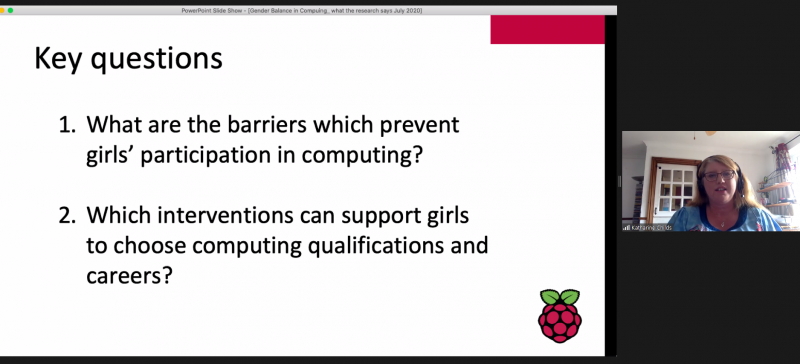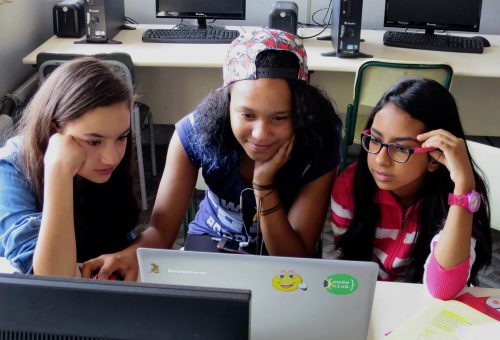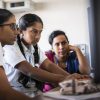Gender balance in computing: current research
We’ve really enjoyed starting a series of seminars on computing education research over the summer, as part of our strategy to develop research at the Raspberry Pi Foundation. We want to deepen our understanding of how young people learn about computing and digital making, in order to increase the impact of our own work and to advance the field of computing education.

Part of deepening our understanding is to hear from and work with experts from around the world. The seminar series, and our online research symposium, are an opportunity to do that. In addition, these events support the global computing education research community by providing relevant content and a forum for discussion. You can see the talks recordings and slides of all our previous seminar speakers and symposium speakers on our website.
Gender balance in your computing classroom: what the research says
Our seventh seminar presentation was given by Katharine Childs from our own team. She works on our DfE-funded Gender Balance in Computing programme and gave a brilliant summary of some of the recent research around barriers to gender balance in school computing.

In her presentation, Katharine considered belongingness, role models, relevance to real-world contexts, and non-formal learning. She drew out the links between theory and practice and suggested a range of interventions. I recommend watching the video of her presentation and looking through her slides.
Katharine has also been publishing a number of excellent blog posts summarising her research on gender balance:
- What real-world problems do girls want to solve using computing?
- How do girls choose their computing role models?
- Why do girls choose computing?
You can read more about our Gender Balance in Computing project and sign up to receive regular newsletters about it.

Join our autumn seminar series
From September, our computing education research seminars will take place on the first Tuesday of each month, starting at 17:00 UK time.
We’re excited about the range of topics to be presented, and about our fantastic lineup of speakers: an international group from Australia, the US, Ireland, and Scotland will present on a survey of computing education curricular and teaching around the world; Shuchi Grover will talk to us about formative assessment; and David Weintrop will share his work on block-based programming. I’ll be talking about my research on PRIMM and the benefits of language and talk in the programming classroom. And we’re lining up more speakers after that.
Find out more and sign up today at rpf.io/research-seminars!
Thank you
We’d like to thank everyone who has participated in our seminar series, whether as speaker or attendee. We’ve welcomed attendees from 22 countries and speakers from the US, UK, and Spain. You’ve all really helped us to start this important work, and we look forward to working with you in the next academic year!






2 comments
David North
What subject are girls studying rather than computing?
On the other side of that If more boys are study in computing is there a subject where the gender balance is the other way around?
Harry Hardjono
A lot of emphasis is on recruiting girls onto computing. I don’t think that is the most important thing. I think a much more important thing to consider is retaining the girls already in the program. How many girls got excited to get in, only to leave in frustration within a year?
Getting in is one thing. Staying in is another. If we can retain the majority of girls who are already in the program, that is a good thing.
Regarding the subjects, there’s a lot of emphasis on tools and techniques, not enough on end products that people actually use. I think this can be better. Much better.